Publications
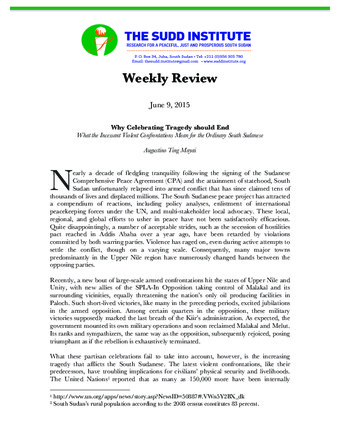
Why Celebrating Tragedy should End: What the Incessant Violent Confrontations Mean for the Ordinary South Sudanese
Author: Augustino Ting Mayai
Organization: The Sudd Institute
Type: Weekly Reviews
Date: 09/06/2015
Recently, a new bout of large-scale armed confrontations hit the states of Upper Nile and Unity, with new allies of the SPLA-In Opposition taking control of Malakal and its surrounding vicinities, equally threatening the nation’s only oil producing facilities in Paloch.
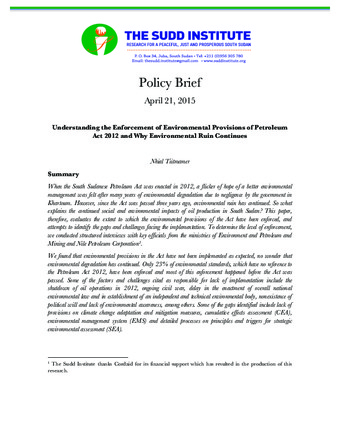
Understanding the Enforcement of Environmental Provisions of Petroleum Act, 2012 and Why Environmental Ruin Continues
Author: Nhial Tiitmamer
Organization: The Sudd Institute
Type: Policy Briefs
Date: 21/04/2015
When the South Sudanese Petroleum Act was enacted in 2012, a flicker of hope of a better environmental management was felt after many years of environmental degradation due to negligence by the government in Khartoum. However, since the Act was passed three years ago, environmental ruin has continued.
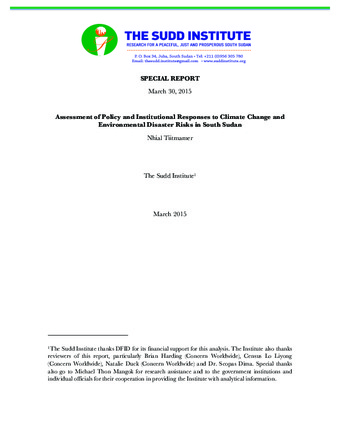
Assessment of Policy and Institutional Responses to Climate Change and Environmental Disaster Risks in South Sudan
Author: Nhial Tiitmamer
Organization: The Sudd Institute
Type: Special Reports
Date: 30/03/2015
This report examines policy and institutional response to climate change and environmental disaster risks, with the view to providing recommendations to the government and its partners in South Sudan on where to focus their environmental policy interventions.
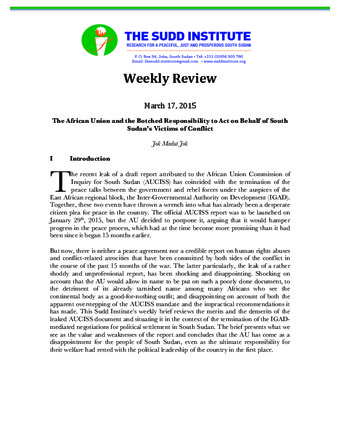
The African Union and the Botched Responsibility to Act on Behalf of South Sudan’s Victims of Conflict
Author: Jok Madut Jok
Organization: The Sudd Institute
Type: Weekly Reviews
Date: 17/03/2015
The recent leak of a draft report attributed to the African Union Commission of Inquiry for South Sudan (AUCISS) has coincided with the termination of the peace talks between the government and rebel forces under the auspices of the East African regional block, the Inter-Governmental Authority on Development (IGAD).
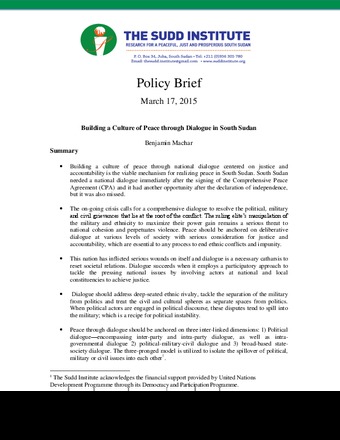
Building a Culture of Peace through Dialogue in South Sudan
Author: Benjamin A. Machar
Organization: The Sudd Institute
Type: Policy Briefs
Date: 17/03/2015
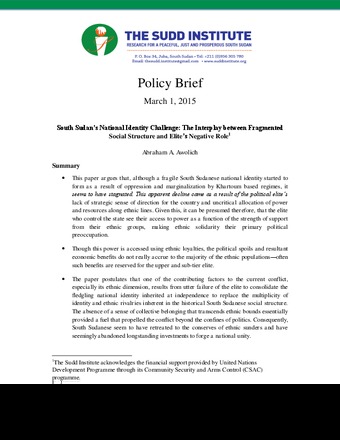
South Sudan’s National Identity Challenge: The Interplay between Fragmented Social Structure and Elite's Negative Role
Author: Abraham Awolich
Organization: The Sudd Institute
Type: Policy Briefs
Date: 01/03/2015
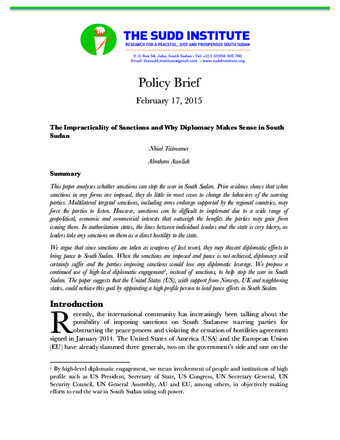
The Impracticality of Sanctions and Why Diplomacy Makes Sense in South Sudan
Authors: Abraham Awolich, Nhial Tiitmamer
Organization: The Sudd Institute
Type: Policy Briefs
Date: 17/02/2015
This paper analyses whether sanctions can stop the war in South Sudan. Prior evidence shows that when sanctions in any forms are imposed, they do little in most cases to change the behaviors of the warring parties.
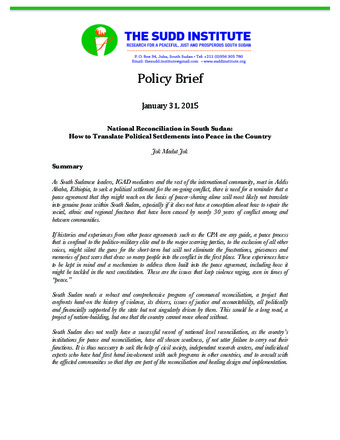
National Reconciliation in South Sudan: How to Translate Political Settlements into Peace in the Country
Author: Jok Madut Jok
Organization: The Sudd Institute
Type: Policy Briefs
Date: 31/01/2015
As South Sudanese leaders, IGAD mediators and the rest of the international community, meet in Addis Ababa, Ethiopia, to seek a political settlement for the on-going conflict, there is need for a reminder that a peace agreement that they might reach on the basis of power-sharing alone will most likely...
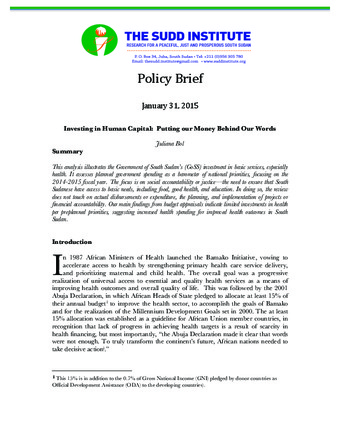
Investing in Human Capital: Putting our Money Behind Our Words
Author: Juliana Bol
Organization: The Sudd Institute
Type: Policy Briefs
Date: 31/01/2015
This analysis illustrates the Government of South Sudan’s (GoSS) investment in basic services, especially health. It assesses planned government spending as a barometer of national priorities, focusing on the 2014-2015 fiscal year. The focus is on social accountability or justice—the need to ensure that South Sudanese have access to basic...
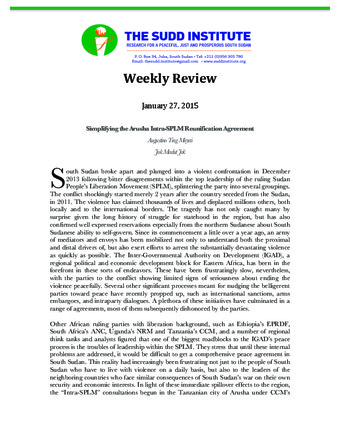
Simplifying the Arusha Intra-SPLM Reunification Agreement
Authors: Jok Madut Jok, Augustino Ting Mayai
Organization: The Sudd Institute
Type: Weekly Reviews
Date: 27/01/2015
South Sudan broke apart and plunged into a violent confrontation in December 2013 following bitter disagreements within the top leadership of the ruling Sudan People’s Liberation Movement (SPLM), splintering the party into several groupings. The conflict shockingly started merely 2 years after the country seceded from the Sudan, in 2011.
